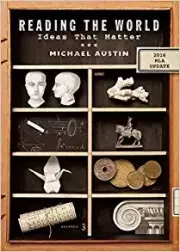Daniil Andreyev - The Rose of the World
 | Название: | The Rose of the World |
Автор: | Daniil Andreyev | |
Жанр: | Старинная литература | |
Изадано в серии: | неизвестно | |
Издательство: | неизвестно | |
Год издания: | - | |
ISBN: | неизвестно | |
Отзывы: | Комментировать | |
Рейтинг: | ||
Поделись книгой с друзьями! Помощь сайту: донат на оплату сервера | ||
Краткое содержание книги "The Rose of the World"
This book was begun at a time when the threat of an unparalleled disaster hung over the heads of humanity-when a generation only just recuperating from the trauma of the Second World War discovered to its horror that a strange darkness, the portent of a war even more catastrophic and devastating than the last, was already gathering and thickening on the horizon. I began this book in the darkest years of a dictatorship that tyrannized two hundred million people. I began writing it in a prison designated as a «political isolation ward.» I wrote it in secret. I hid the manuscript, and the forces of good-humans and otherwise-concealed it for me during searches. Yet every day I expected the manuscript to be confiscated and destroyed, just as my previous work-work to which I had given ten years of my life and for which I had been consigned to the political isolation ward-had been destroyed.
Читаем онлайн "The Rose of the World". [Страница - 4]
The League's constitution will not restrict its membership to people of any particular philosophical or religious belief. All that will be required is an active commitment to realizing its program and a resolve not to violate its moral code, the cornerstone of the organization.
Despite all the vicissitudes of public service, the goals of the League must be attained not at the price of departure from its moral code but as a result of faithful adherence to it. Its reputation must be spotless, its disinterestedness not subject to doubt, its moral authority ever increasing, as the best and finest of humanity will be drawn to it and will constantly strengthen its ranks.
The path to global unification will proceed, in all likelihood, through various stages of international solidarity, through the unification and merger of regional blocs. The last stage would take the form of a global referendum or plebiscite-some form of free vote by every person. It may result in a victory for the League only in certain countries. But the inexorable march of history will be on the League's side. The unification of even half the globe will be the final step in a revolution of people's consciousness. A second referendum will be held, perhaps a third, and a decade or so later the borders of the Federation will encompass all of humanity. Then there will be a real possibility of implementing a series of wide-ranging measures aimed at transforming the conglomerate of states into a single state that will be gradually altered by two parallel programs: one external, concerned with political, social, and economic affairs, and one internal, focused on educational, moral, and religious matters.
From the above, it should be clear that the members of the League and its national parties will be able to wield as weapons only their words and their own example, and this only against those ideologies and doctrines that try to clear the path to power for a dictator or support a dictator already in power. Although the activities of the great Mahatma Gandhi and the political party he inspired were confined to the national scale, the League will see them as its historical predecessors. The first political leader/ living saint in modern times, Gandhi consolidated a purely political movement on a foundation of high moral standards, refuting the prevailing attitude that politics and morality are incompatible. But the national borders within which the Indian National Congress acted will be expanded by the League to encompass the entire planet, and the goals of the League will be of a higher historical stage, or series of stages, than were the goals set by the great party that freed India.
Oh, there will of course be many people who will insist that the League's methods are impractical and unrealistic. I've met enough champions of political realism to last me a lifetime. There is no injustice or social villainy that has not tried to cover itself with that pitiful fig leaf. There is no weight more deadening, more earthbound, than talk of political realism as a counter to everything lofty, everything inspirational, everything spiritual. Such political realists are, incidentally, the same sort of people who in their time claimed, even in India, that Gandhi was a dreamer out of touch with reality. They were forced to eat their words when Gandhi and his party, while maintaining high moral standards, won freedom for their country and led it to prosperity. But this was not the kind of material prosperity that blinds people's eyes with the black soot of statistics on the increase in coal production or with radioactive dust from experimental tests of hydrogen bombs. This was cultural, ethical, aesthetic, and spiritual prosperity, which would slowly but surely give rise to material well-being.
Those who are unable to see the good in people those whose outlook has coarsened and whose conscience has withered in the atmosphere of flagrant state violations of human rights will also accuse the League of unrealistic methods. They will be joined by those who cannot see what revolutions in mass consciousness await us in the not too distant future. The trauma of wars, oppression, and every possible violation of human rights already has launched a grass roots movement for peaceful coexistence. Events that destroy our feeling of security, deprive us of all comfort and peace of mind, and uproot our faith in current ideologies and the social orders they uphold are constantly taking place and will continue to do so. The exposing of the unbelievable atrocities perpetrated behind the imposing facade of dictatorships, concrete proof of the foundation and price of their temporary victories and apparent successes, will parch the soul like a hot desert wind. People's spiritual thirst will become unbearable. The elimination of the threat of great wars, the discovery of paths to uniting the world without bloodshed, a spiritual leader and living saint who will head a united humanity in the future, the weakening of state coercion, and the growth of a global community spirit this is what believers pray for and nonbelievers dream about in our century. And it is highly probable that a lofty, global teaching, moral, political, philosophical, and spiritual will transform this generation's thirst into an international creative enthusiasm.
The fact that humanity's last major religious movement the Protestant Reformation took place four hundred years ago, and that the last religion of global impact, Islam, is in its thirteenth century of existence is sometimes cited in support of the argument that the religious era of humanity is past. But one should gauge the potential of religion as a whole, not by its specific forms. What matters is not how long ago the last major forms emerged but whether the evolution of religion has reached a dead-end: whether it is possible to integrate the indisputable laws of science into creative religious thought, whether there glimmers within such a worldview the possibility of making sense of our experience in the new era, and whether religion will be able to play a real and progressive role in such experience.
It is true that approximately four hundred years have passed since the last major religious movement of international scope. It is also true that for many centuries prior to the Protestant Reformation there had been no comparable movements. But is that even the point? Is it still not clear that a definite current of mental, creative work absorbed almost all of humanity's spiritual and intellectual energy during the last few centuries? It would be difficult to expect that while maintaining such a rapid pace of scientific, technical, and social progress and creating such cultural treasures in literature, music, philosophy, and art, humanity would, in the last centuries, find within itself the energy to create more universal religious systems as well.
But the turn of the century was the end of an era. The golden age of literature, art, music, and philosophy came to a close. The realm of sociopolitical activity has drawn to itself and with time this has become more and more apparent not the most, but the least, spiritual representatives of the human race. A gigantic
--">Книги схожие с «The Rose of the World» по жанру, серии, автору или названию:
 |
| Michael Austin - Reading the World: Ideas That Matter Жанр: Старинная литература Год издания: 2015 |




